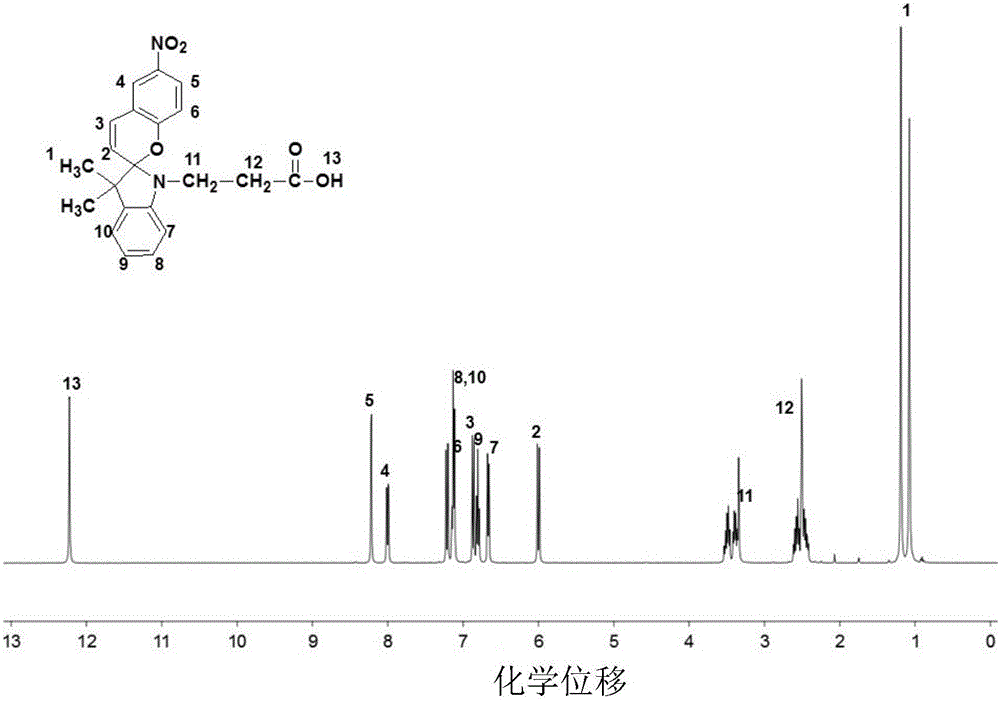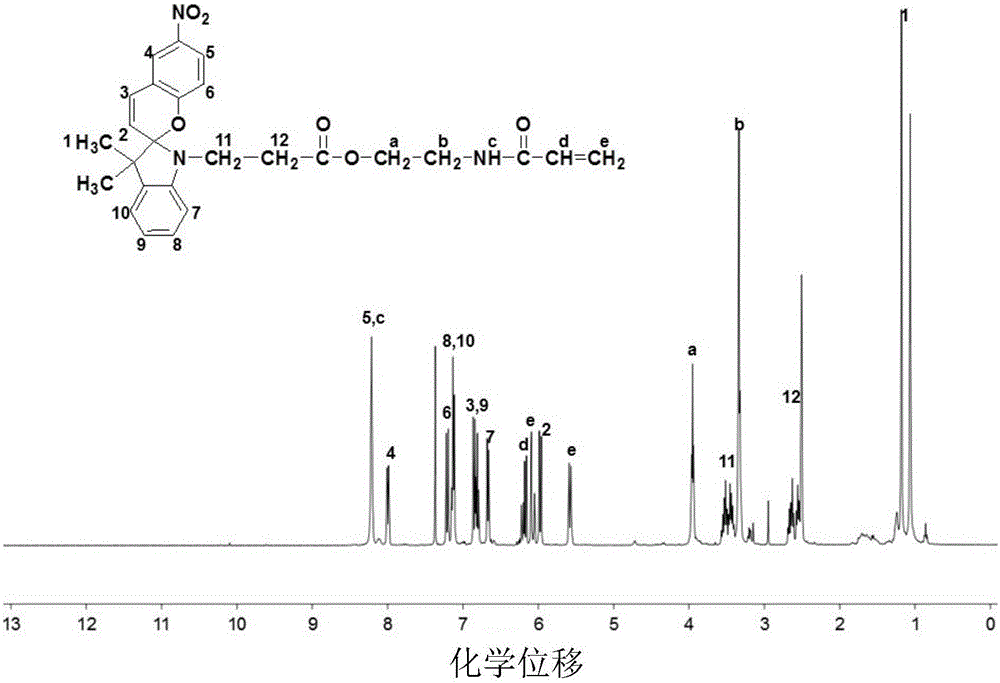Application of high-strength light sensitive hydrogel in action of adjusting cell attachment
A high-intensity light and hydrogel technology, applied in animal cells, tumor/cancer cells, vertebrate cells, etc., can solve problems such as gel damage and weak mechanical properties of hydrogel, and achieve high water absorption and significant light Sensitivity, effect of simple preparation method
- Summary
- Abstract
- Description
- Claims
- Application Information
AI Technical Summary
Problems solved by technology
Method used
Image
Examples
Embodiment 1
[0032] The monomer oligoethylene glycol methacrylate (6mg), 2-vinyl-4,6-diamino-1,3,5-triazine (6mg), SP (0.6mg) and crosslinking agent Ethylene glycol diacrylate (8.4mg) was added to a 1.5ml centrifuge tube, 210μl of DMSO was used to dissolve the monomer and crosslinker, and then the photoinitiator Irgacure 2959 (0.5mg) was added. The solvent containing monomer, crosslinking agent and initiator is injected into a closed mold, and the mold is irradiated in a UV curing box for 30 minutes to initiate free radical polymerization. Then the mold was opened to take out the gel, rinsed several times with deionized water and soaked for 7 days, and the deionized water was replaced every 12h.
[0033] Cell culture and desorption on the surface of the gel: The obtained gel was immersed in medical alcohol for sterilization for 4 hours, then placed in a 96-well plate, and 200μl of DMEM medium was added to replace the medical alcohol. Add L929 cell suspension to a culture plate with gel and i...
Embodiment 2
[0036] The monomer oligoethylene glycol methacrylate (6mg), 2-vinyl-4,6-diamino-1,3,5-triazine (12mg), SP (0.9mg) and crosslinking agent Ethylene glycol diacrylate (12.6mg) was added to a 1.5ml centrifuge tube. After dissolving the monomer and crosslinker with 315μl of DMSO, the photoinitiator Irgacure 2959 (0.7mg) was added. The solvent containing monomers, crosslinking agent and initiator is injected into a closed mold, and the mold is irradiated in an ultraviolet curing box for 30 minutes to initiate free radical polymerization. Then the mold was opened to take out the gel, rinsed several times with deionized water and soaked for 7 days, and the deionized water was replaced every 12h.
[0037] Cell culture and desorption on the surface of the gel: The obtained gel was immersed in medical alcohol for sterilization for 4 hours, then placed in a 96-well plate, and 200μl of DMEM medium was added to replace the medical alcohol. Add L929 cell suspension to a culture plate with gel ...
Embodiment 3
[0040] The monomer oligoethylene glycol methacrylate (6mg), 2-vinyl-4,6-diamino-1,3,5-triazine (18mg), SP (1.2mg) and crosslinking agent Ethylene glycol diacrylate (16.8mg) was added to a 1.5ml centrifuge tube. After dissolving the monomer and crosslinker with 420μl of DMSO, the photoinitiator Irgacure 2959 (0.9mg) was added. The solvent containing monomer, crosslinking agent and initiator is injected into a closed mold, and the mold is irradiated in a UV curing box for 30 minutes to initiate free radical polymerization. Then the mold was opened to take out the gel, rinsed several times with deionized water and soaked for 7 days, and the deionized water was replaced every 12h.
[0041] Cell culture and desorption on the surface of the gel: The obtained gel was immersed in medical alcohol for sterilization for 4 hours, then placed in a 96-well plate, and 200μl of DMEM medium was added to replace the medical alcohol. Add L929 cell suspension to a culture plate with gel and incubat...
PUM
 Login to View More
Login to View More Abstract
Description
Claims
Application Information
 Login to View More
Login to View More - R&D
- Intellectual Property
- Life Sciences
- Materials
- Tech Scout
- Unparalleled Data Quality
- Higher Quality Content
- 60% Fewer Hallucinations
Browse by: Latest US Patents, China's latest patents, Technical Efficacy Thesaurus, Application Domain, Technology Topic, Popular Technical Reports.
© 2025 PatSnap. All rights reserved.Legal|Privacy policy|Modern Slavery Act Transparency Statement|Sitemap|About US| Contact US: help@patsnap.com



